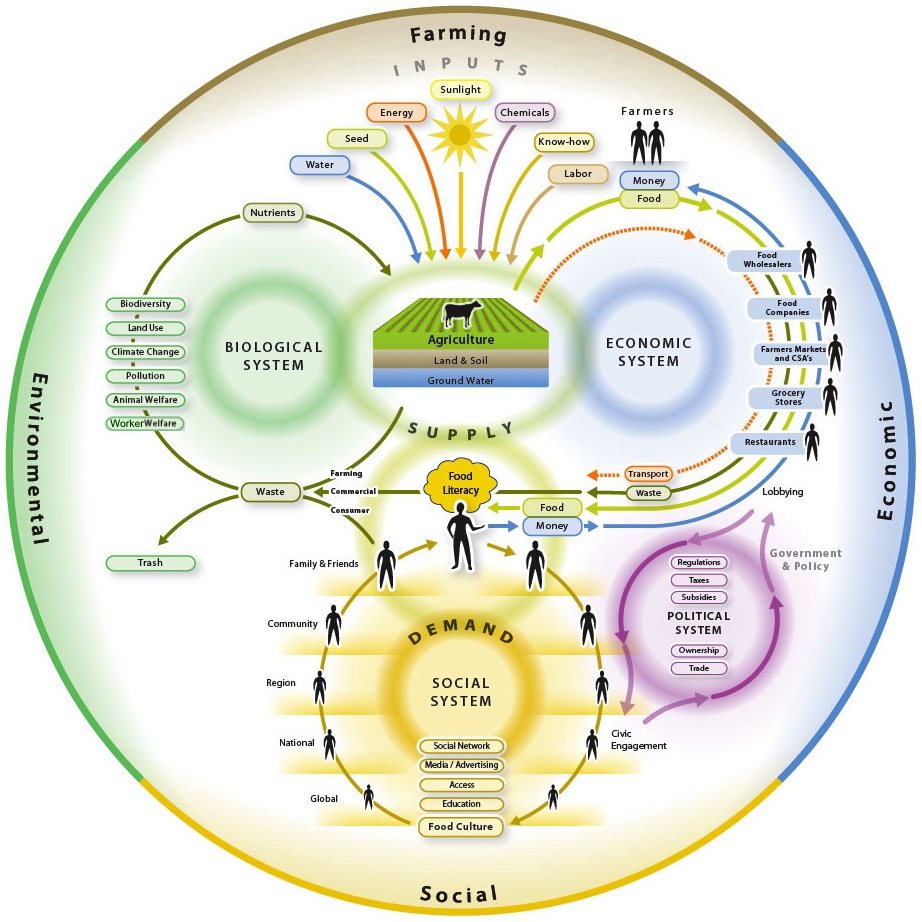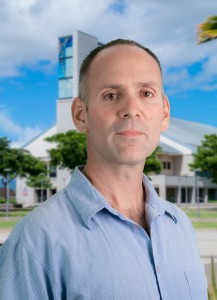
Agroecologist and UH West Oʻahu Assistant Professor of Sustainable Community Food Systems Albie Miles and colleagues at the Union of Concerned Scientists and Stanford University published “Triggering a positive research and policy feedback cycle to support a transition to agroecology and sustainable food systems,” in a special edition of the Journal of Agroecology & Sustainable Food Systems.
Dr. Milesʻ article considers the historical and ongoing barriers and opportunities for agroecological research and the advancement agri-food system sustainability. It argues for a rapid transition to a more ecologically sustainable and socially equitable food system, one that restores ecosystem services, enhances human welfare and promotes community-based economic development.

UH West Oʻahu Assistant Professor of Sustainable Community Food Systems Albie Miles
The special edition of the journal, entitled “Agroecology: building an ecological knowledge-base for food system sustainability,” was edited and written by global leaders in the field of agroecology. The journal explores how ecological research in agroecosystems has expanded and enriched both the ecological and agricultural sciences. It looks at case studies related to biodiversity, water management and conservation, disease ecology, linkages between above and below ground interactions, nutrient cycling, and relationships between complexity, productivity, and resilience in agroecosystems. The special edition culminates in an analysis of the barriers and opportunities for agroecological research and food system change.
Article Abstract:
An ecologically sustainable and socially equitable food system, one that restores ecosystem services, enhances human welfare and promotes community-based economic development, is urgently needed. Applied agroecological research and the development of regional and community food systems are key means through which pressing ecological and social externalities may be mitigated. However, progress in both of these areas has been limited, particularly in the US, with constraints in each likely holding the other back. In this article, we first review and explore how public investment in agroecology research and development has been limited in the US. We then discuss how agricultural research funds could be shifted to better support the development of more resilient and equitable food systems. Finally, we explore a broader set of structural obstacles to food system change and identify key policies that could work jointly to strengthen a positive feedback cycle of research, policy, education and practice. Such a feedback cycle could work to accelerate a transition to ecological farming and food system norms that enhance natural resources sustainability, equity and resilience.
Dr. Albie Miles
Dr. Miles received his Ph.D. in Environmental Science, Policy and Management from the University of California, Berkeley in 2013. His natural science research explores the synergies between farming system biodiversity and the provisioning of globally important ecosystem services from agriculture. His social science research explores the socio-economic and political obstacles to a more ecologically sustainable and socially equitable food system. Dr. Miles has held posts at the United Nations Food and Agriculture Organization (FAO) and the Center for Agroecology and Sustainable Food Systems (CASFS) at the University of California at Santa Cruz.
